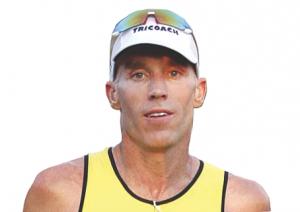Success in training requires a good night’s sleep
Sleeping patterns play a large role in an individual’s exercise habits. How much sleep you get, when you sleep and the quality of sleep will always impact training. So let’s look at the major factors that influence sleeping habits and some things we can do to overcome some obstacles we may encounter.
Believe it or not, DNA plays a large role in determining if you are an earlier bird or a night owl. According to Nzinga Harrison, chief medical officer at Anka Behavioral Health Inc., research indicates that about 10 percent of the population has a specific genetic makeup that influences the urge to wake up early and start the day. For the rest of us, it can feel like a struggle. About 50 percent of the population has a DNA code that favors late night hours. The rest of the population have a hybrid DNA and could have a tendency either way. However, sleeping patterns are not simply based on genetics. There are other factors that influence how or when we sleep, and those factors will change throughout our lives. If we look at a normal timeline, as we age we find that sleeping patterns constantly fluctuate.
In the adolescent years the body will be going through a significant growth rate in a short period of time. Normally parents will see their children begin to sleep longer hours, and early morning wake-ups become more and more difficult. In our 20s many hormone levels are elevated and social settings normally require late evenings, so most individuals tend to be night owls. It is not until we get into our 30s where our bodies level out to a point where our DNA will play a greater role in determining if we are more of a night owl or a morning person. As we get into our 50s, our hormone levels go the other direction compared to our 20s, and there is a tendency to go to bed earlier and wake up earlier.
I am an advocate for doing morning workouts. The two main benefits of morning workouts are:
You get it done and out of the way; life will get in the way, and it is easy to find an excuse to not get the workout in if you try to do workouts later in the day.
It elevates endorphins and reduces stress levels; this will allow for a clear mind and more productive day.
However, if you are an individual that is more of a night owl, it can be very difficult to consistently get out of bed and into the gym before the sun is up. Don’t give up. There are some things that can help.
• Set a schedule and stick to it; if you need to be up at 5 a.m. for a workout then go to bed before 10 p.m. to allow to at least seven hours of sleep. It may be difficult at first, but the body will adjust over time to a consistent routine.
• If you find it is difficult to clear your mind, try making a checklist each night. Check off everything you got done today and everything you will get done tomorrow. If you do that every night there will be less worry and stress, which should help with allowing the mind to relax and will make it easier to fall asleep.
• Keep a log; record how much you sleep a night and the quality of sleep. This can be a great resource when compared to illness. You will normally see alteration in sleeping habits when the body is run down and more likely to get sick.
• Lastly, I would limit the amount of fluid intake before bed. Quality of sleep is even more important than quantity of sleep. If you feel the need to wake up for a bathroom break in the middle of the night, the quality of sleep is getting interrupted.
Having a better understanding of your sleeping habits can have a positive impact on your health and mental well-being. Although there may be tendencies that influence an individual’s sleeping habits, there are things that can be done to improve or change current habits to allow for a more productive day and/or exercise routine.




















































